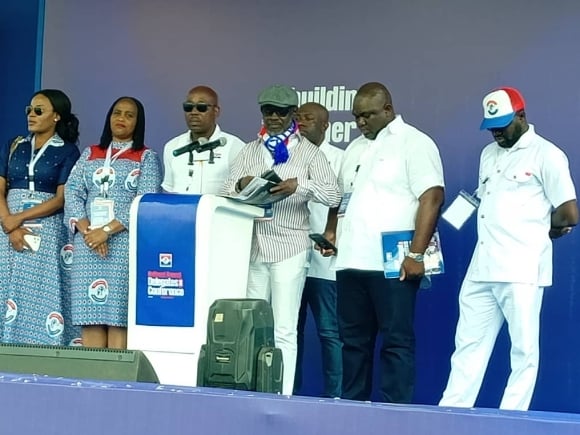The New Patriotic Party (NPP) of Ghana embarked on a significant restructuring exercise during its National Delegates Conference held in Accra on July 19, 2024. The conference culminated in the approval of 54 motions designed to overhaul the party’s constitution and internal workings, setting the stage for a revitalized approach to the 2028 general elections. This comprehensive reform effort reflects the party’s commitment to strengthening internal democracy, improving governance, and enhancing its electoral competitiveness. The adopted motions address a broad spectrum of party operations, from grassroots organization and electoral processes to leadership roles and policy formulation.
A key theme emerging from the approved motions is the expansion of inclusivity and broader participation within the party. Several motions focused on granting voting rights to previously excluded groups, such as former party officials, TESCON members, and members of Councils of Elders and Patrons, in various electoral processes, including presidential primaries and National Delegates Conferences. This expansion aims to create a more representative and democratic internal electoral system, empowering a wider range of party stakeholders and potentially boosting overall party engagement and cohesion. The motions also tackled the composition and responsibilities of various committees at different levels of the party structure, aiming for greater efficiency and strategic focus.
Another area of significant reform pertains to the roles and responsibilities of party officials. Motions were passed to clarify reporting lines, ensuring greater accountability and streamlined administrative processes. For example, the National Treasurer will now report to the General Secretary, consolidating administrative oversight. Furthermore, the conference addressed the potential conflict of interest arising from party officials holding government positions. Motions were adopted to prevent dual roles, requiring party officers appointed to government positions to relinquish their party roles. This aims to ensure focused attention on governmental duties and create opportunities for other party members to contribute to the party’s organizational activities.
The conference also grappled with the sensitive issue of removing party officials from office. Motions were adopted to establish clear procedures for removing both elected and appointed officials, providing guidelines for petitioning, investigation, and decision-making. This move is intended to enhance transparency and fairness within the party’s disciplinary processes, minimizing potential for arbitrary actions and ensuring due process for all members. The motions also introduced timelines for these processes, further strengthening accountability and preventing protracted disputes.
A significant change to the party’s electoral processes is the proposed abolishment of the Super Delegates system for presidential primaries. This system, designed to shortlist presidential candidates, has been deemed to have outlived its usefulness. The motion to abolish it reflects a desire for a more direct and inclusive primary process, allowing a wider range of party members to directly participate in selecting the party’s flagbearer. This move aligns with the overall theme of broadening participation and democratizing internal party elections. Furthermore, the timing of the presidential primary election when the party is in government has been adjusted, providing the chosen candidate with more time to campaign before the general elections.
Finally, the NPP’s focus on internal reform also extended to clarifying its identity and values. A motion to include the party’s motto, symbol, and colors within the constitution highlights the importance of solidifying the party’s brand and reinforcing its core principles. The conference also emphasized the need to incorporate policy discussions into the National Delegates Conference, requiring the consideration of position papers from various party committees. This move reflects a commitment to policy-driven decision-making and ensures that the party’s platform is regularly reviewed and updated to address current national issues. The inclusion of both Members of Parliament and non-parliamentarians in these Sector Committees further broadens the base of expertise contributing to policy formulation.


